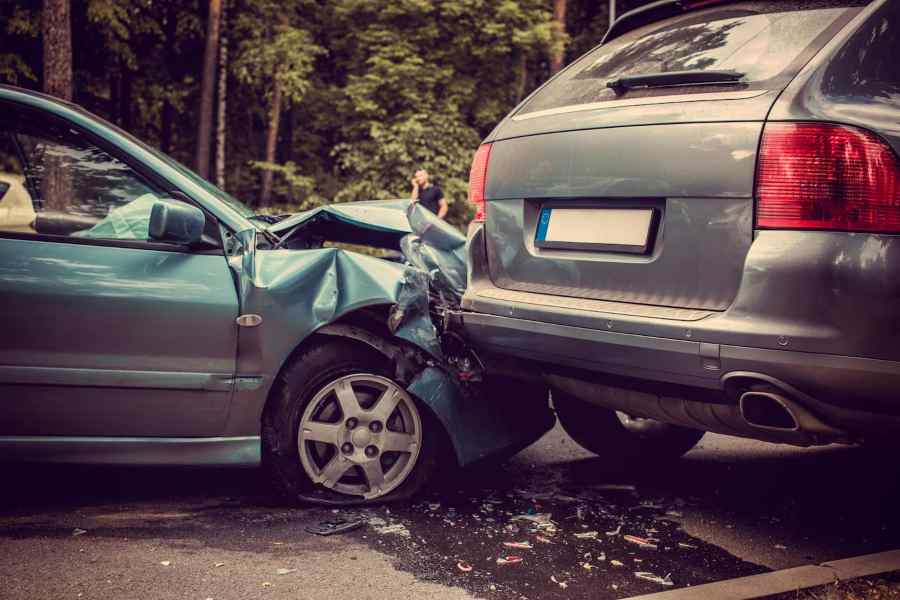After a car crash, many individuals wonder about their obligations regarding the DMV. In most cases, it is required to report the accident to the DMV, especially if there are injuries or significant damage involved. This requirement can vary by state, making it essential for drivers to be informed about their respective laws.
Understanding the reporting process can alleviate stress after an accident. Failing to notify the DMV could result in penalties, including fines or complications with insurance claims. The information shared can impact future interactions with law enforcement and insurance providers.
Navigating the aftermath of a crash can be confusing, but being aware of one’s responsibilities is crucial. Knowing whether to inform the DMV not only helps avoid potential legal issues but also ensures compliance with state regulations.
Reporting Your Accident to the DMV
Understanding the requirements for reporting a crash to the DMV is essential. Different states have specific criteria for when a report must be filed, as well as procedures for submitting the information. Knowing this ensures compliance and helps avoid potential penalties.
Criteria for Mandatory Reporting
Each state has defined criteria that determine whether a crash must be reported to the DMV. Key factors typically include:
Injury or Fatality: If anyone is injured or killed in the accident, it is usually required to report it.
Property Damage: Significant damage to vehicles or public property often triggers the need for a report. States may set a monetary threshold for this.
Hit and Run: If the accident involves a hit and run, reporting is generally mandatory.
Failing to report an accident when required can lead to fines or increased insurance premiums. Familiarity with local laws helps drivers remain compliant and informed.
How to Report
Reporting a crash to the DMV usually involves a few steps. Drivers should begin by gathering essential information:
Accident Details: Date, time, and location of the crash.
Parties Involved: Names, addresses, and insurance information of drivers and witnesses.
Police Report: If available, obtain a copy for accurate details.
To submit the report, drivers may have options such as:
Online Submission: Many DMVs provide forms accessible on their websites.
Mail: Sending the completed forms via postal service is commonly accepted.
In-Person: Visiting the DMV office directly can facilitate the process.
It is crucial for drivers to be aware of their state’s reporting deadlines to avoid penalties.
Understanding Your Legal Obligations
When involved in a car crash, understanding the legal obligations regarding reporting to the DMV is essential. Each state has specific laws governing what needs to be reported and when.
State Laws and Regulations
Most states require drivers to report crashes to the DMV, particularly if there are injuries or significant property damage. For example, California mandates reporting accidents that result in injuries or damages exceeding $1,000.
Drivers typically have a limited timeframe to report the incident, often within 10 days. Failing to report can lead to fines or penalties. An Injury and Accident Lawyer can help ensure compliance with these regulations.
In Santa Cruz, local regulations align with state laws but may have additional requirements. Consulting a Personal Injury Lawyer Santa Cruz can clarify obligations and potential consequences of not reporting.
Seeking Legal Assistance
Navigating the aftermath of a crash can be complex. Legal guidance can provide clarity on obligations, rights, and potential repercussions.
When to Contact a Lawyer
Individuals should consider reaching out to a lawyer immediately after a crash if there are injuries, disputes about fault, or significant property damage. An Injury and Accident Lawyer can evaluate the situation, ensuring that victims understand their rights and responsibilities.
If the accident involves multiple parties or potential insurance claims, legal expertise is crucial. They can assist with communication between insurance providers, handle any necessary legal documentation, and ensure compliance with all state requirements. Additionally, awareness of local laws, such as those applicable in Santa Cruz, can significantly influence the outcome of a case.
Benefits of Legal Representation
Engaging a Personal Injury Lawyer Santa Cruz offers several advantages. A skilled attorney can evaluate the specifics of the crash, helping victims pursue rightful compensation for medical expenses, lost wages, and emotional distress.
Having legal representation often increases the likelihood of a favorable settlement. Attorneys are familiar with negotiation tactics and can counter lower settlement offers from insurance companies. Furthermore, they can prepare for trial if necessary, ensuring that all aspects of a case are thoroughly presented. Legal counsel not only provides valuable advice but also alleviates the stress of dealing with legal processes after an accident.


